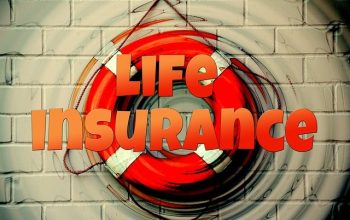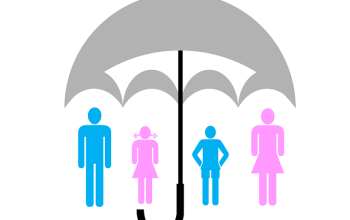General Liability Insurance is essential for small businesses to protect against third-party claims involving bodily injury, property damage, and personal injuries. This insurance safeguards businesses from financial repercussions and legal defense costs associated with such claims. Beyond this, Professional Liability Insurance (Errors and Omissions insurance) is crucial for professionals providing services, while Product Liability Insurance within Commercial Liability Insurance ensures protection against harm caused by defective products. Small Business Insurance can be tailored to incorporate these coverages, offering a comprehensive shield against a wide range of potential liabilities in different regions. It's vital for businesses to evaluate their Public Liability Insurance options and consider Business Liability Coverage and Commercial Liability Insurance to ensure they are adequately protected from the various risks inherent in today's business environment, thereby safeguarding their operational integrity, financial health, and long-term success.
When operating a business that engages with the public, safeguarding against unforeseen incidents is not just prudent—it’s imperative. Public Liability Insurance stands as a critical defense mechanism, shielding your venture from financial repercussions due to third-party claims arising from accidents or property damage linked to your business operations. In an era where litigation is commonplace, securing this coverage is essential not only for protecting your finances but also for preserving the integrity of your enterprise. This article delves into the nuances of General Liability Insurance, including its distinctions from Professional and Product Liability Coverage, and provides insights on how Small Business Insurance can be tailored to meet diverse business needs. It’s a guide to navigating the complexities of liability insurance, ensuring your business remains resilient in an unpredictable world.
- Understanding Public Liability Insurance: A Comprehensive Shield for Businesses
- The Scope of General Liability Insurance and Its Importance for Small Businesses
- Differentiating Between Professional, Product, and Commercial Liability Coverage
- Key Factors to Consider When Evaluating Public Liability Insurance Policies
- Ensuring Comprehensive Protection: Combining Public Liability with Other Insurance Types
Understanding Public Liability Insurance: A Comprehensive Shield for Businesses
When it comes to safeguarding your business from unforeseen incidents involving third parties, General Liability Insurance stands as a critical component of your risk management strategy. This form of insurance, often synonymous with Public Liability Insurance, is designed to shield your enterprise against claims arising from bodily injury, property damage, personal injury, and advertising injury caused by your business operations. For small businesses, in particular, this coverage is indispensable, as a single incident could potentially lead to costly legal battles and financial repercussions.
Understanding the scope of Public Liability Insurance is essential for any business owner. It encompasses a wide range of scenarios where your company might be held liable, such as when a customer slips and falls on your premises or when your product causes harm to a consumer. This insurance not only covers the cost of compensatory payments to those affected but also provides for legal defense costs in the event you are sued. Extending beyond this, Professional Liability Insurance addresses claims related to professional services or advice provided by your business, ensuring that even complex service-related issues are covered. Similarly, Business Liability Coverage, Product Liability Insurance, and Commercial Liability Insurance all serve distinct yet overlapping roles in protecting different facets of your business operations. In today’s litigious society, securing the appropriate liability coverage is not just a prudent measure; it’s a cornerstone for maintaining the integrity and continuity of your business in the face of unexpected events.
The Scope of General Liability Insurance and Its Importance for Small Businesses
General Liability Insurance serves as a comprehensive shield for businesses against third-party claims arising from bodily injury, property damage, and personal and advertising injury. This type of coverage is crucial for small businesses that operate in environments where they interact with customers or use rented space, as it safeguards against the financial repercussions of accidents that may occur on their premises or due to their operations. For instance, if a customer slips and falls on a wet floor in a retail store, or if a product sold causes harm, General Liability Insurance can cover the legal defense costs and any compensation awarded to the claimant.
Furthermore, it’s not just about physical incidents; General Liability Insurance also encompasses Professional Liability Insurance, which protects against claims of negligence or errors in professional services rendered. This aspect is particularly pertinent for businesses offering advice, consultation, or specialized expertise. Additionally, Product Liability Insurance, a subset under Commercial Liability Insurance, ensures that small businesses are not financially crippled by the costs associated with defective products that may cause harm to consumers after purchase. In essence, having robust Business Liability Coverage is essential for maintaining trust and credibility in the market, as it demonstrates to clients and stakeholders that a business takes its responsibilities seriously and is prepared to handle any unforeseen incidents responsibly. With today’s heightened awareness of accountability, small businesses must prioritize obtaining these coverages to protect their operations and secure their future.
Differentiating Between Professional, Product, and Commercial Liability Coverage
When considering the array of liability insurance options available to businesses, it’s crucial to understand the distinctions between General Liability Insurance, Professional Liability Insurance, Business Liability Coverage, Public Liability Insurance, Small Business Insurance, Product Liability Insurance, and Commercial Liability Insurance. At the core, General Liability Insurance serves as a comprehensive form of protection that addresses common liability exposures for businesses, such as third-party claims for bodily injury or property damage resulting from the company’s operations. This coverage typically includes a range of incidents, including those occurring on the business’s premises, inadvertent bodily harm caused by the business or its employees, and advertising injuries like libel or slander.
Delving deeper, Professional Liability Insurance, also known as Errors and Omissions (E&O) insurance, is tailored for businesses that provide professional advice, services, or consultancy. It safeguards against claims arising from alleged negligence, errors, or omissions in a professional capacity. This type of coverage is essential for industries such as legal, medical, engineering, and technology sectors, where advice or service delivery can have significant consequences if something goes awry. In contrast, Product Liability Insurance specifically addresses the risks associated with the manufacturing or supply of products that may cause harm to users or third parties. It covers legal expenses and compensation claims for defective products or those that fail to meet safety standards. Commercial Liability Insurance is a broader category that can encompass various types of liability risks, including those not explicitly covered under General Liability Insurance policies. Small Business Insurance packages often include a combination of these coverages, offering a tailored shield against the diverse array of risks businesses face. Understanding and securing the appropriate type of business liability coverage is essential for safeguarding financial stability, maintaining a strong reputation, and ensuring business continuity in an environment where claims can arise from even unforeseen circumstances.
Key Factors to Consider When Evaluating Public Liability Insurance Policies
When evaluating Public Liability Insurance policies, it’s crucial for businesses to consider the scope of coverage provided by General Liability Insurance, Professional Liability Insurance, and Business Liability Coverage. These policies often serve as the foundation of protection against third-party claims for bodily injury, property damage, and personal injury such as libel, slander, or copyright infringement. Small Business Insurance plans can be tailored to include these essential coverages, ensuring that a business’s operations are safeguarded from unforeseen events that could lead to costly litigation.
For businesses that handle physical products, understanding the nuances of Product Liability Insurance within Commercial Liability Insurance is equally important. This aspect of coverage addresses claims related to product defects or failures that cause harm to consumers. It’s essential to assess the policy limits and exclusions, as well as the defense coverage provided by the insurer in the event of a claim. Additionally, businesses should consider the geographical reach of the policy, ensuring it aligns with their operational footprint. This thorough evaluation will help businesses select a Public Liability Insurance policy that not only complements their specific risk profile but also provides comprehensive protection against a wide range of liability exposures.
Ensuring Comprehensive Protection: Combining Public Liability with Other Insurance Types
When safeguarding your business against unforeseen incidents and legal disputes, it’s crucial to consider comprehensive protection that extends beyond Public Liability Insurance alone. Small businesses often encounter a variety of risks, and understanding how General Liability Insurance differs and complements Public Liability Insurance is key. General Liability Insurance typically covers third-party bodily injury and property damage claims, which are core aspects of public liability concerns. However, it also addresses the costs associated with libel, slander, and product disparagement—risks that can significantly impact a company’s reputation and bottom line.
For businesses offering professional services, Professional Liability Insurance, also known as Errors and Omissions Insurance, is indispensable. This type of coverage protects against claims of negligence or misconduct in the performance of professional duties. In contrast to Public Liability Insurance, which addresses physical harm or property damage, Professional Liability Insurance specifically targets the financial consequences of providing flawed advice, services, or professional guidance.
Moreover, businesses that manufacture or sell products should consider Product Liability Insurance as part of their commercial liability coverage strategy. This insurance type is tailored to address claims arising from product defects or malfunctions that lead to harm or property damage. It complements Public Liability Insurance by providing a focused shield against the unique vulnerabilities present in product-centric businesses.
Incorporating Business Liability Coverage and Commercial Liability Insurance into your risk management strategy ensures that your business is prepared for a wide array of scenarios. This holistic approach to liability insurance not only provides peace of mind but also supports business continuity by mitigating the financial impact of legal claims. As the business landscape becomes increasingly complex, having a robust insurance portfolio that includes Public Liability Insurance, General Liability Insurance, Professional Liability Insurance, and Product Liability Insurance can be the difference between resilience and vulnerability for your operation.
In conclusion, the robust umbrella of Public Liability Insurance serves as a critical safeguard for businesses of all sizes, particularly small enterprises that often operate in environments where customer interaction is paramount. This insurance, which encompasses General Liability Insurance and extends to Professional and Product Liability Coverage, is an indispensable component of a comprehensive business liability package. It not only mitigates the financial risks associated with third-party claims but also safeguards the business’s continuity and reputation in our litigious society. By understanding the nuances between different types of liability coverage—including Commercial Liability Insurance—and carefully evaluating policies, businesses can ensure they are adequately protected against unforeseen incidents. In today’s competitive landscape, investing in robust Small Business Insurance is a strategic decision that prudent business owners should not overlook.



